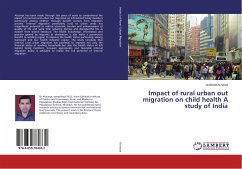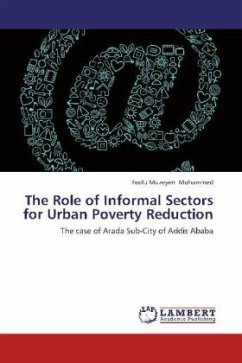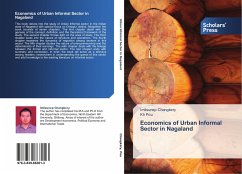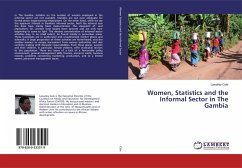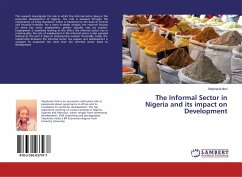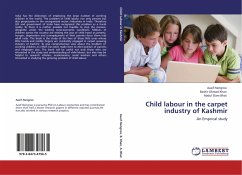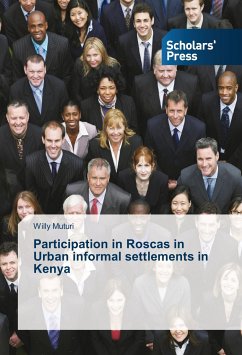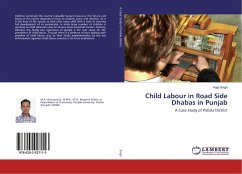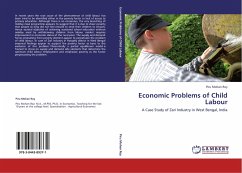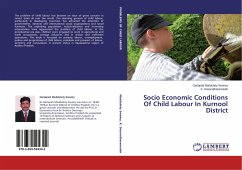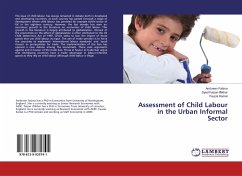
Assessment of Child Labour in the Urban Informal Sector
Versandkostenfrei!
Versandfertig in 6-10 Tagen
36,99 €
inkl. MwSt.

PAYBACK Punkte
18 °P sammeln!
The issue of child labour has always remained in debate both in developed and developing countries, as each country has passed through a stage of development where child labour has persisted for example textile sector of UK in the eighteen century. However, the last decade has seen an enormous growth in the literature on economics of child labour. This growth in the literature is largely attributed to globalization. Interest of the economists on the effect of globalization is often attributed to the US Child Deterrence Act of 1997, which seeks to ban the import of those goods that use child la...
The issue of child labour has always remained in debate both in developed and developing countries, as each country has passed through a stage of development where child labour has persisted for example textile sector of UK in the eighteen century. However, the last decade has seen an enormous growth in the literature on economics of child labour. This growth in the literature is largely attributed to globalization. Interest of the economists on the effect of globalization is often attributed to the US Child Deterrence Act of 1997, which seeks to ban the import of those goods that use child labour as input. The aim of trade sanction is to force the countries to implement 'international labour standards' and 'social clauses' as prerequisites for trade. The implementation of the ban has opened a new debate among the economists. There exist arguments against and in favour of the trade ban. Those in favour of trade ban argue that developing countries have a trade advantage in labour-intensive goods as they rely on child labour although child labour is illegal.



